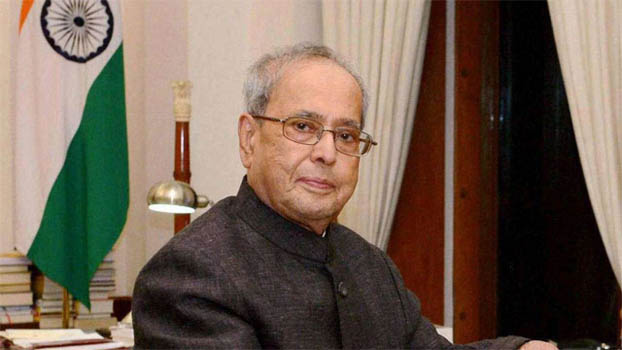Pranab Mukherjee: The champion of a spiritual and soulful relationship

On December 31, 1948 during the East Pakistan Literary Conference in Dhaka, Dr Muhammad Shahidullah had said, “We may be Hindus or Muslims, but ultimately we belong to same Bengali culture". He made this comment within a year of the bloody partition of undivided India resulting in fissures among the Bengalis on both sides of the newly-created border.
Bangla language that connects Bangladesh and India is one of the oldest languages of the Indian sub-continent. It originated from the Prakrit language around 1500 years ago and has maintained integrity of the Bengali nation starting from the rule of King Shasank and through the rules of Pal, Sen and many other dynasties. However, this bonding among the Bengali people across religious lines was not tested for the first time in 1947. ‘Banga-bhongo’ or split of Bengal by the British Raj was another such state-sponsored challenge posed to us.
Islam came to Bengal in the 13th century. It was the Muslim Sufis who won the heart of locals and not with the sword, which meant that local Hindus and Buddhists hardly had any issues with Islam. Liberal Islam always existed in Bengal, which did not obstruct the preaching of Sri Chaitanya Dev to spread from Sylhet to various parts of Bengal and other parts of India. Muslim rulers of Bengal even sponsored translation of Mahabharata and Srimad Bhagbat Gita in Bengali.
Spiritual humanity spread by the Sufi of Bengal had transformed the Bengali society of that time, which had lasting influence on the Bengali society for centuries. ‘Banga-bhango’, an attempt by the British to mislead the Bengalis by dividing them, was therefore a failed experiment in Bengal.
These spiritual and soulful relations between the two people prompted the wholehearted support of India in the creation of Bangladesh, when Bengali nationalism came out victorious against the Pakistanis with the fourth mightiest military power shattered in the Bengal marshes. When late Bhupen Hazarika sang in Assam, “Padma is my mother, Ganges is my mother”, he was literally singing the Bengali spirit. Bangladesh and India bear the same secular belief that was enriched by great poets like Rabindranath Tagore and Nazrul Islam and later laid on firm foundation by visionary leaders like Bangabandhu Sheikh Mujibur Rahman and Indra Gandhi. The legacy is now being carried forward by Honorable Prime Ministers Sheikh Hasina and Narendra Modi.
However, one more name stands out among this handful of great people and he is none other than late Sri Pranab Mukherjee, the former Indian President. Pranab Babu will no doubt be remembered for many a reason, but one thing the Bengali people will ever respect him for is being the ‘champion well-wisher of Bangladesh’.
He was always there to support Bangladesh in times of crisis. In June 1971, he called for the recognition of the Bangladesh government in exile by the Indian government at the Budget Session of Rajya Sabha. He did not stop there and went on to demand that India declares war against Pakistan for the crimes against humanity being committed by them at that time in Bangladesh, the then East Pakistan. He personally visited the camps of Bangladeshi refugees in West Bengal in 1971 to ensure their wellbeing.
In 1975, after the brutal assassination of Bangabandhu, he stood by the two orphan daughters of Bangabandhu, today’s Honorable Prime Minister Sheikh Hasina and her younger sister Sheikh Rehana, during their lives in exile in New Delhi. After the armed rebellion protesting Bangabandhu’s assassination, Pranab Babu maintained liaison with the rebels on behalf of the Indian government. And after 1/11, when the evil nexus of ‘Fakhruddin and Moeen Uddin’ were all set to eliminate Sheikh Hasina from the political scenario of Bangladesh, the then Indian Ex
ternal Affairs Minister Sri Pranab Mukherjee sent a clear message to visiting Lt Gen Moeen Uddin in New Delhi to the contrary, that helped bring Bangladesh back to the democratic path.
The national flags of the two brotherly countries remained at half-mast at the demise of this late Indian President, which is a testimony to the fact how important role Pranab Mukherjee mastered to keep the ‘spiritual and soulful Indo-Bangla relationship’ on track whenever it had been challenged and how deep-seated the root of these relations are.
Professor Mamun Al Mahtab (Shwapnil) is Chairman, Liver Department Bangabandhu Sheikh Mujib Medical University, and Member Secretary, Samprity Bangladesh




